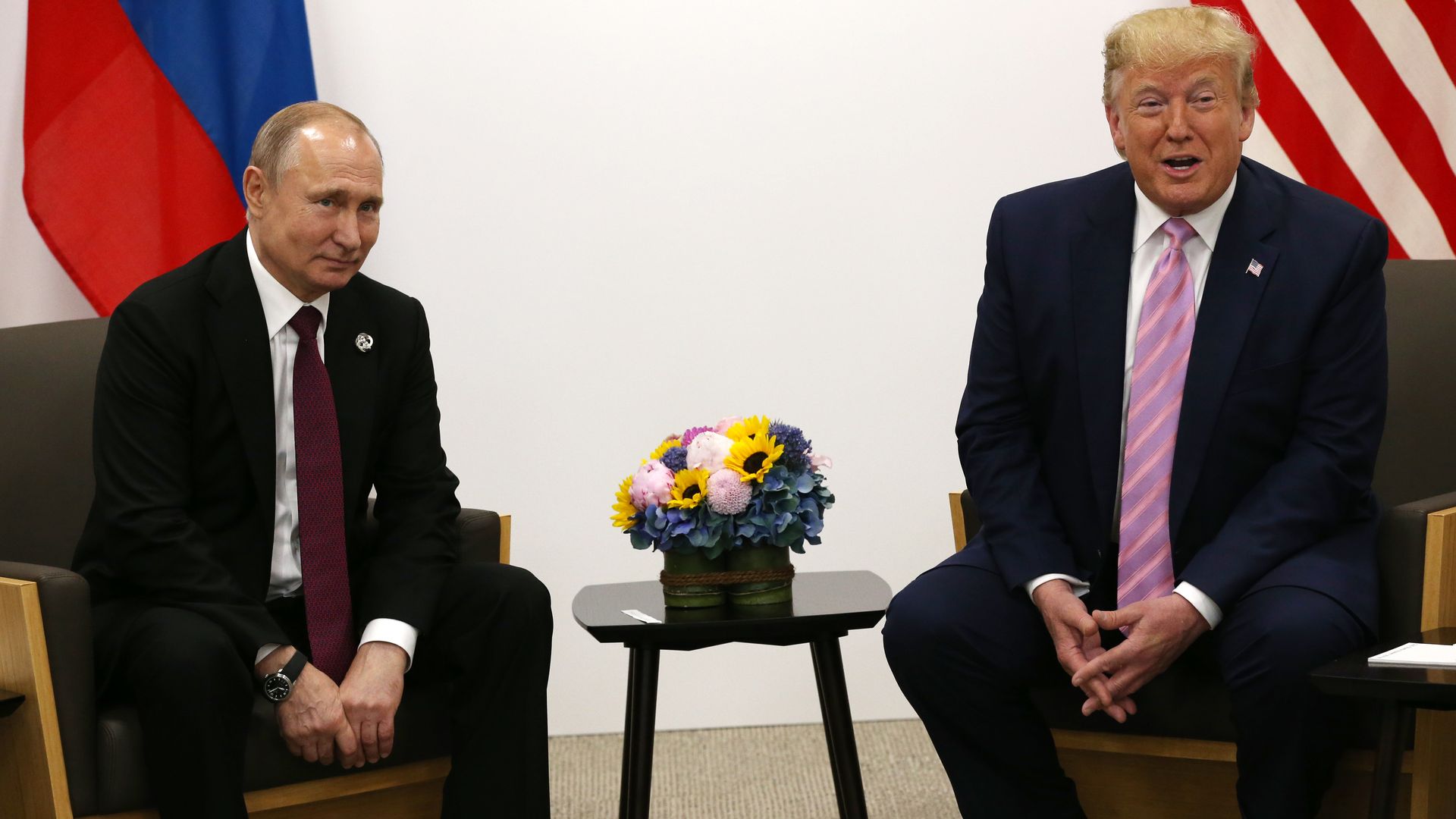Report: U.S. is underestimating Putin's "grand strategy" for Russian dominance
Add Axios as your preferred source to
see more of our stories on Google.

Vladimir Putin with President Trump at the G20 summit. Photo: Mikhail Svetlov/Getty Images
A new report prepared for the Pentagon suggests that the U.S. is underestimating the scale of Russian President Vladimir Putin's "grand strategy" for dominance on the world stage, and that inaction in the face of Russia's malign influence activities poses a serious threat to U.S. national security.
"Contrary to conventional analysis, after two decades under Vladimir Putin, Russia represents an ideological challenge to the West, not just a political and military rivalry. Although NATO continues to possess impressive overmatch against Moscow, that edge is dwindling, and Western vulnerabilities in certain military areas are alarming. Moreover, the unwillingness of Western experts and governments to confront the ideological — as well as political and military — aspects of our rivalry with Putinism means that the threat of significant armed conflict is rising."
The big picture: The study, which was compiled by more than two dozen national security experts and was first reported by Politico, finds that Putin's grand strategy is comprised of the following objectives:
- "Reclaim and secure Russia's influence over former Soviet nations."
- "Regain worldwide recognition as a 'great power.'"
- "Portray itself as a reliable actor, a key regional powerbroker, and a successful mediator in order to gain economic, military, and political influence over nations worldwide and to refine the liberalist rules and norms that currently govern the world order."
In order to achieve these objectives and advance its foreign policy, Russia has sought to master the art of "hybrid warfare" through "the use of paramilitary forces and other proxies, interference in political processes, economic and energy exploitation (particularly in Africa), espionage, and media and propaganda manipulation."
- The report argues that the U.S. is uniquely equipped to limit the success of this grand strategy, but that its "greatest weakness" is a lack of coordinated efforts across government agencies.
- Anna Borshchevskaya, a contributing author to the report, tells Politico that internal divisions at home are weakening the U.S' ability to combat Russia abroad: "We still have a story to tell but because we are so polarized and are doubting ourselves we have a narrative problem. Russia does not."
- The report also stresses that closer strategic ties between China and Russia — countries that share "an affinity for authoritarian stability" and a mutual fear or hostility toward the U.S. — would pose an extreme threat and must be countered.
Driving the news: The release of the report comes the same weekend that President Trump met Putin at the G20 summit and appeared to tell him — rather playfully — not to meddle in the 2020 U.S. elections.
- Why it matters: Special counsel Robert Mueller concluded in his report that Russian interference in the 2016 election was "sweeping and systematic." Others in the intelligence community have warned that interference efforts are likely to continue in 2020.
The bottom line: "Political objectives matter to the Kremlin in a zero-sum worldview," the report claims. "For Russia to win, the U.S. has to lose."
Go deeper: Putin talks Trump in rare, wide-ranging interview

